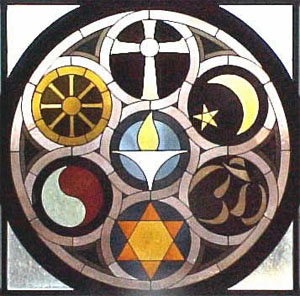
-- Kieckhefer "European Witch Trials" pub University of California Press, 1976
The Black Death slots neatly into the middle of that period. The first cases occurred in southern France and northwestern Italy in December 1348, and it reached Scotland and Scandinavia two years later.
-- Ziegler "The Black Death" pub Collins 1968
1315 - 1320 were the first 5 famine years of the Little Ice age, involving continual rain and the ruin of cereal crops. An estimated 2 million souls died. In the following 300 years, there were 111 of total famine. In France an estimated 7 million died. All death statistics in this whole period are SWAGs (scientific wild-assed guesses), though the few extant birth records reveal that the women were trying to repopulate Europe. Many women formed beguinages, mainly female towns/villages/communes. Such population centers were easy targets for later genocidal murders ordered by the church.
-- M. Kolbenschlag "Eastward unto Eve" pub Crossroads 1996
The plague was made more virulent because people were (a) starving and (b) huddled together in hovels for warmth--along with heat-seeking rats that bore the fleas that carried the disease.
The 1350-81 time period saw continuous peasant revolts against civil and church laws. In England the 1351 revolt is well documented. It was caused by the church's backing of the Statute of Laborers, which attempted (a) to fix wages back to pre-plague levels and (b) to reintroduce serfdom and forced labor.
The first serious mention of Witches comes from the Council of Constance, 1414-16 CE :
"Witches are real and are the cause of the bad weather."
This was a reversal of the previous position of the church in the Canon Episcopi, which decreed the death penalty for anyone who burned supposed magicians. St. Boniface's encyclical declared : "Belief in magic and werewolves is unchristian."
Only in 1428 CE was the classical definition of "witch" tortured out, in trials held in the canton of Valais (Switzerland). The definition allows hair-splitting Christians to claim that none of the "heretics" murdered earlier were Witches and that anyone who doesn't exactly fit the Valais definition is not a Witch and thus doesn't count.
-- G & Y Frost "Who Speaks for the Witch?" pub Godolphin House 1991
-- H. C. Lea "Materials toward a History of Witchcraft" (3 volumes) pub Yoseloff 1957
-- H. R. Trevor-Roper "The European Witch Craze" pub Pelican 1969
It appears to us that this period, say 1315 through 1376 CE, should be studied in more depth to correlate information from various disciplines. Maybe a doctoral thesis... ?
By the way, any time you get a chance to hear Professor Skip Clark at one of the festivals, do it! He is a genuine expert on the subject, not just a guy on a crusade, and has no axe to grind.
-- S. Clark "Mythhistory of Witchcraft" / VHS tape pub Godolphin House 2005
Suggested e-books:
Nathan Johnston - The Devil And Demonism In Early Modern EnglandFriedrich Adler - The Witchcraft Trial In Moscow
Margaret Alice Murray - The Witch Cult In Western Europe
Tags: out of body experience research white magic spells for love real black magic spells magic spells for luck spells black magic is there life after death love spells rituals magical spells and potions








